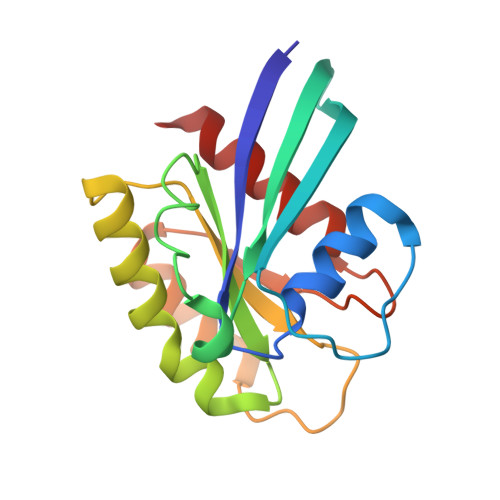A restricted spectrum of NRAS mutations causes Noonan syndrome.
Cirstea, I.C., Kutsche, K., Dvorsky, R., Gremer, L., Carta, C., Horn, D., Roberts, A.E., Lepri, F., Merbitz-Zahradnik, T., Konig, R., Kratz, C.P., Pantaleoni, F., Dentici, M.L., Joshi, V.A., Kucherlapati, R.S., Mazzanti, L., Mundlos, S., Patton, M.A., Silengo, M.C., Rossi, C., Zampino, G., Digilio, C., Stuppia, L., Seemanova, E., Pennacchio, L.A., Gelb, B.D., Dallapiccola, B., Wittinghofer, A., Ahmadian, M.R., Tartaglia, M., Zenker, M.(2010) Nat Genet 42: 27-29
- PubMed: 19966803
- DOI: https://doi.org/10.1038/ng.497
- Primary Citation of Related Structures:
3I3S - PubMed Abstract:
Noonan syndrome, a developmental disorder characterized by congenital heart defects, reduced growth, facial dysmorphism and variable cognitive deficits, is caused by constitutional dysregulation of the RAS-MAPK signaling pathway. Here we report that germline NRAS mutations conferring enhanced stimulus-dependent MAPK activation account for some cases of this disorder. These findings provide evidence for an obligate dependency on proper NRAS function in human development and growth.
- Institute of Biochemistry and Molecular Biology II, Heinrich-Heine University Medical Center, Düsseldorf, Germany.
Organizational Affiliation:



















